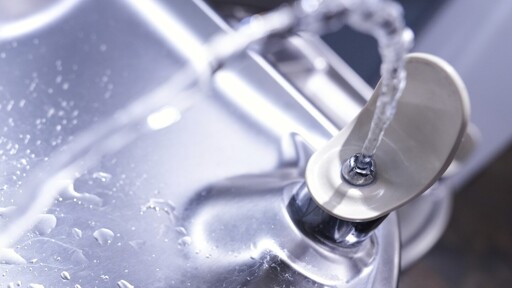Summary
Utah became the first state to ban fluoride in public drinking water after Republican Gov. Spencer Cox signed legislation prohibiting local decisions on fluoridation.
Cox cited cost and personal choice, likening fluoride to government “medication.”
The ban faces opposition from dentists and health experts, who argue fluoride prevents cavities and benefits low-income communities.
Nearly two-thirds of Americans receive fluoridated water. Some cities have already removed fluoride, and a recent court order requires the EPA to regulate high levels that may affect children’s intellectual development.



The fact that this is normal in the US is incomprehensible to my European brain. I don’t think the fluoride is harmful, I don’t think there’s anything nefarious about it all, I just think it’s weird to add things to the water supply?
Water coming from the tap should just be … water? If you want fluoride in it for better dental health, just add it yourself? Or use fluoride toothpaste?
I feel like if you start doing that, you kinda open the door to mass dosing of other “potentially beneficial” agents. And things we think are safe today, may turn out to be unsafe a few decades from now (see lead, plastics and a number of pharmaceutical compounds that turned out to be unsafe later after decades of use).
https://en.wikipedia.org/wiki/Water_fluoridation_by_country
Plenty of countries have fluoride in their water. Ultimately, if you brush your teeth, it is a useless policy but if you dont brush your teeth, it helps a little and with 0 negative side effects.
It is a policy that “my individual rights” crowd loves to shit on. Whether individual rights are more important than a minor effect to the health of a few individuals is debatable.
Here in the Netherlands we stopped in 1976 because there was an increase in migraines, stomach- and bowel issues and depression ever since fluoride was added to the drinking water supply (+5%).
Toothpaste still has it, but it’s cautioned against to use fluoride-enriched toothpaste for children due to studies suggesting a negative effect on brain development. But even with fluoride-enriched toothpaste the amount is being reduced because there appear to be more damaging effects that are lessened in lower dosages, and the health benefits are seemingly not impacted.
https://doi.org/10.1007/s00204-020-02725-2
it is already accepted that tap water will have chemicals added (at a minimum chlorine) to make it safe to drink, fluoride generally has benefits in small amounts, the amount that the water company addes IMO should be published somewhere accessible so people won’t get too much, but removing contaminants from water is far from a new idea in America.
The concept of a water company is so weird…
Why?
It’s a public utility here. Like electricity and garbage collection.
electricity and garbage collection aren’t companies where you are?
No, the city handles all of that.
I guess that makes some sense, but would be kind of weird if you were forced to get garbage collection in every city (some us cities more or less force it others don’t and some have multiple competing options) or required to be connected to the electric grid.
But I suppose this is just coming from me having lived primarily in rural areas where those services are often less than ideal and having the option to just not use them makes you feel less forced. (water trucks/wells, septic systems, taking trash to a transfer station in a car/truck, generators/solar are the main alternatives)
I’m not sure how it is in the middle of nowhere but as far as I know you don’t have to be connected either. You won’t have an electricity bill (since that’s provincial), but the rest is handled by municipal taxes and I don’t know if you can opt out of those.